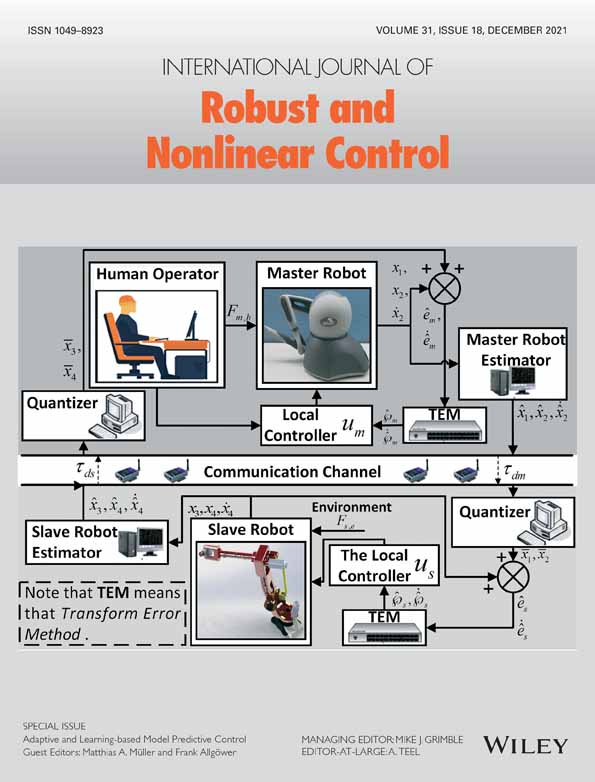A successive convex optimization method for bilinear matrix inequality problems and its application to static output-feedback control
Funding information: National Natural Science Foundation of China, 61873028; 62103041; Scientific and Technological Innovation Foundation of Shunde Graduate School, USTB, BK19AE021
Abstract
This article explores a successive convex optimization method for solving a class of nonconvex programming problems subject to bilinear matrix inequality (BMI) constraints. In particular, many control issues can be boiled down to BMI problems, which are typically NP-hard. To get out of the predicament, we propose a more relaxed feasible set to approximate the original one, based on which a local optimization algorithm is developed and its convergence is analyzed. As a case of application, we consider static output-feedback control for uncertain systems with disturbances in restricted frequency intervals. In order to strengthen the disturbance-rejection capability over the given frequency range, we establish sufficient and necessary analysis conditions via the generalized Kalman-Yakubovich-Popov lemma, under which the homogeneous polynomially parameter-dependent technique is adopted to facilitate the design. Finally, several examples are given to demonstrate the efficiency of the results.
CONFLICT OF INTEREST
The authors declare that there are no conflict of interests to this work.
Open Research
DATA AVAILABILITY STATEMENT
The data that support the findings of this study are available from the corresponding author upon reasonable request.



 static-output-feedback control of linear discrete-time systems
static-output-feedback control of linear discrete-time systems filtering for uncertain 2-D Roesser systems
filtering for uncertain 2-D Roesser systems control design for linear systems with polytopic uncertainties
control design for linear systems with polytopic uncertainties control of systems with polytopic uncertainties
control of systems with polytopic uncertainties ib: constraint matrix-optimization problem library-a collection of test examples for nonlinear semidefinite programs control system design and related problems; 2004; Department of Mathematics, University of Trier, Trier, Germany
ib: constraint matrix-optimization problem library-a collection of test examples for nonlinear semidefinite programs control system design and related problems; 2004; Department of Mathematics, University of Trier, Trier, Germany control for vehicle active suspension systems
control for vehicle active suspension systems
